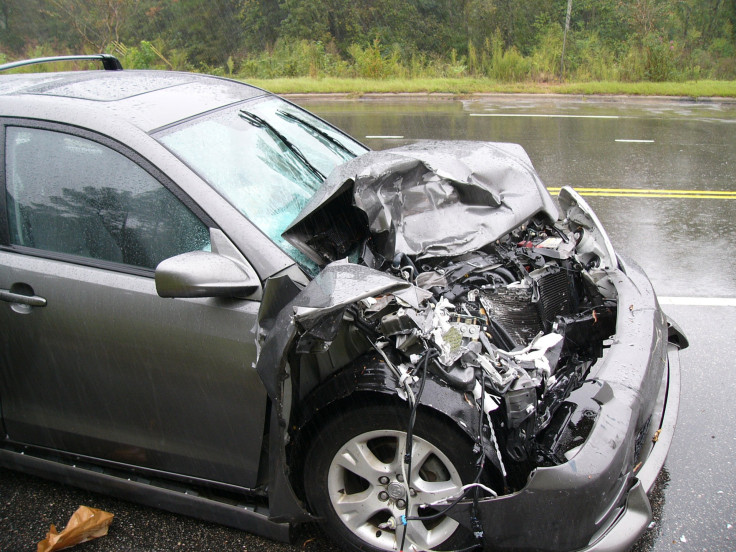Is The Auto Industry Churning Out More Lemons, Or More Recalls?

Headrests that might not keep passengers from breaking their necks in collisions, front airbags that fail to deploy as intended, and costly steering and water or gas pump defects; these are just the latest vehicle flaws that have led to voluntary or mandatory recalls in the auto industry.
Recent years have seen record numbers of flawed vehicles sent back to manufacturers for repairs.
On Wednesday, Toyota Motor Corporation (NYSE:TM) said it was recalling 2.7 million vehicles worldwide for a steering and water pump problem it says has not caused any accidents. The models affected include 630,000 Toyota Prius gasoline-electric hybrids for the water pump issue. Other models have both the steering and the pump problems.
The recall could cost Toyota up to a half-billion dollars, one of the largest tabs in history. But the number of vehicles is considerably under the 7.4 million Toyota announced last month needed to be checked for faulty power window switches, a relatively minor concern, but a concern nonetheless for the company’s reputation for reliable and safe vehicles.
"They seem to continue to be obsessively monitoring these things and looking for potential problems before they arise," Deutsche Securities autos analyst Kurt Sanger told Reuters. "That's a decent range of financial impact, we assume. There doesn't seem to be much brand risk around this, given that there haven't been injuries and excessive complaining leading up to the product action and recall."
The recent recalls aren’t as serious as the ones Toyota announced starting in 2009 regarding unintended acceleration problems in some vehicles that were linked to fatalities in the U.S.
Automaker recalls, both mandatory and voluntary, have been on the rise in recent years. In 2010, 20.3 million vehicles were recalled in the U.S., the fourth-highest year on record, according to The New York Times. Automakers hit a record in 2010 in terms of recall campaigns, 648, according to the NHTSA.
With the exception of four years, auto recalls have stayed above 15 million since 1995. Before that the numbers were closer or under 10 million, except for 1981, when Ford Motor Co. (NYSE: F) recalled 21 million of its vehicles due to a flaw that caused cars to be in reverse when the drivers believed them to be parked.
But recalls do not lemons make. If automakers are being more conscientious about the potential damage to their safety reputations, as Toyota is, this could explain the rise in the number of recalls vehicles in recent years. For example, out of the 20.3 million vehicles recalled in 2010, 14.9 million were voluntary. This means the defects weren’t serious enough for the U.S. National Highway Traffic Safety Administration to intervene and force a recall. It doesn’t mean voluntary recalls aren’t addressing potential dangers, just that the likelihood of the danger is low, or the companies are being more proactive in pre-empting potential dangers to drivers, passengers and, of course, companies’ bottom lines.
Here’s a list of vehicle recalls just from the start of the month:
- Detroit’s General Motors Company (NYSE: GM) is summoning the 2012 Buick Verano, Chevrolet Cruze, and Chevrolet Sonic because the driver’s side airbag might not deploy as intended during collisions. The company’s 2013 Cadillac XTS is also the target of a GM recall for passenger head restraints that might not lock into position and therefore fail to protect against neck injury.
- Big rig maker Mitsubishi Fuso Truck of America Inc. (MFTA), based in Logan Township, N.J., said it was recalling certain models of long-haul trucks in order to check the line connecting to the fuel filter to check for a potential flaw that could cause a fuel leak and combustion.
- Another big-rig player, Kenworth, a brand of Bellevue, Wash.-based PACCAR Inc (NASDAQ: PCAR), said it was recalling some 2012 and 2013 utility trucks for potential leaks to the air lines that handle the vehicles’ brakes. (Failed brakes on a 2004 Freightliner utility bucket truck killed 57-year-old utility worker Jacqueline Green in August during the massive windstorm that wiped out power in the mid-Atlantic states this summer.)
- Appleton, Wis.-based Pierce Manufacturing Inc., which makes fire engines, wants to check 2006-2008 Contender model firefighting trucks to check their pump engines, manufactured by Caterpillar Inc. (NYSE: CAT), for a potential software flaw that could cause water pressure to spike unexpectedly and cause injury to firefighters.
- Chrysler Group LLC, a division of Italy’s Fiat S.p.A. (PINK: FIATY), wants to check model years of the Jeep Grand Cherokee and Jeep Liberty for the scary prospect of airbags deploying inadvertently, causing rather than preventing injury.
- Britain’s Jaguar Land Rover North America, LLC is checking its 2010-2012 XF vehicles for potential cracked fuel tank outlet flanges that could cause fuel leaking and combustion.
© Copyright IBTimes 2024. All rights reserved.












